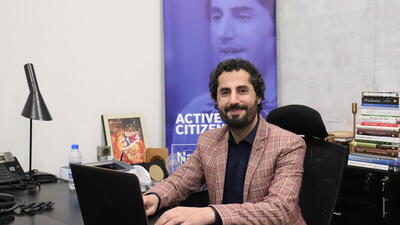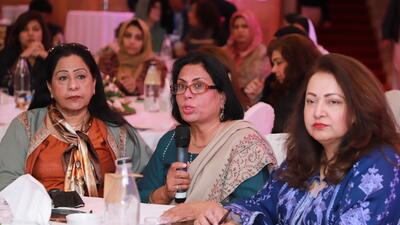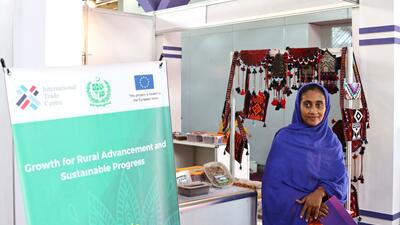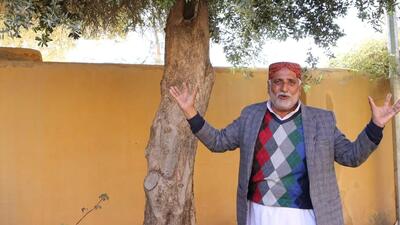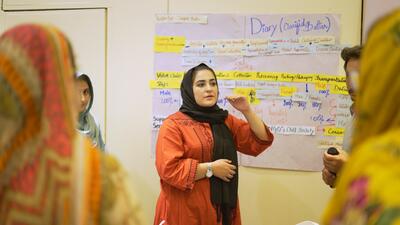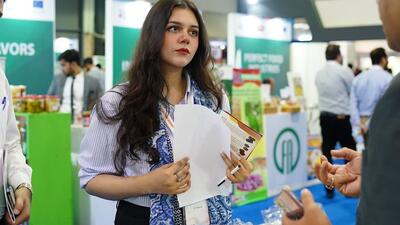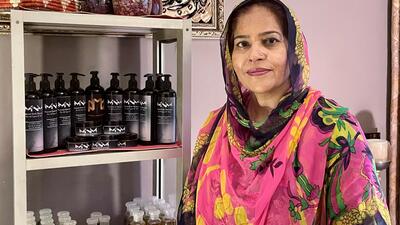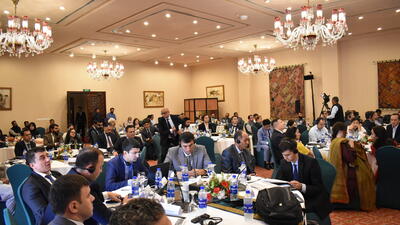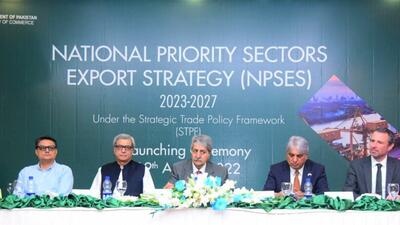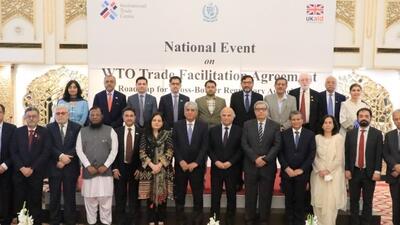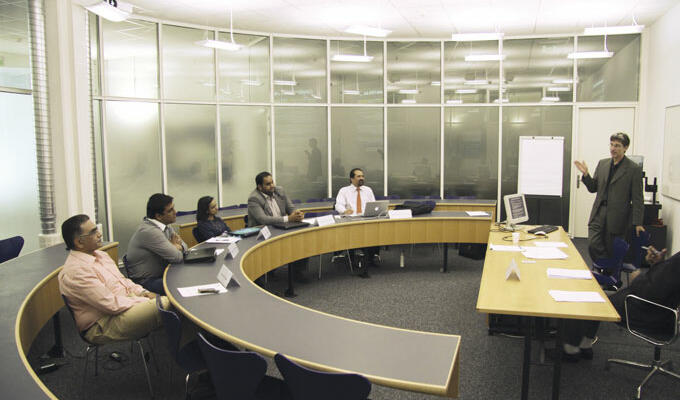
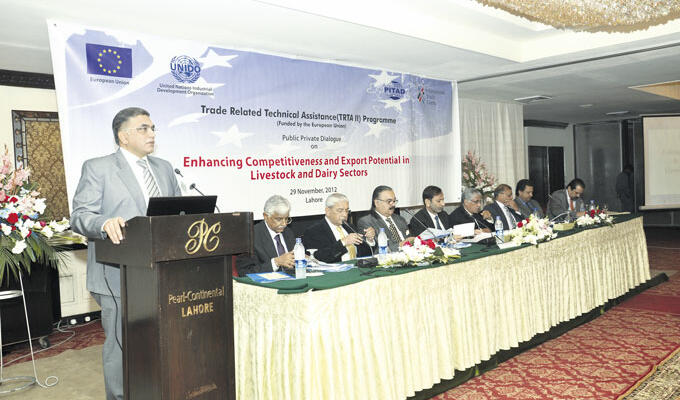
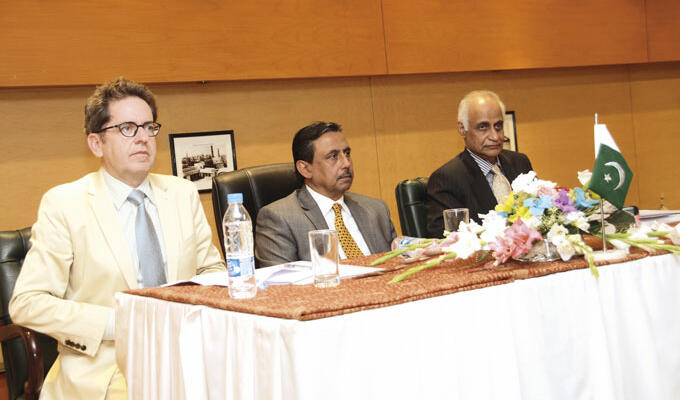
Strengthening institutional capacity in Pakistan
In short courses across Pakistan, civil servants working with the country’s business sector are receiving training on trade remedies, intellectual property, NTMs and other trade-related topics. Their coaches are master trainers of the government think tank PITAD. The courses are part of a four-and-a-half-year, €10 million, EU-funded project to enhance the capacity of PITAD as a research, training and export development institute, as well as the focal point on trade policy consultations with the private sector.
"Before attending the training course, I believed that NTMs are regulatory tools in the hands of the government but after attending the first day ... I believe it is a double-edged sword and the government has to choose whether a developing economy breathes by it or bleeds by its misuse." Junaid Usman Akram, Second Secretary, Federal Board of Revenue
‘I am working with newly inducted officers, who will serve the ministry for a long time. As such, this course will have a long-lasting effect,’ said Muhammad Shafiq Haider, one of PITAD’s six master trainers, who specializes in the multilateral trading system. The real beneficiaries of the courses, however, are business people with whom his trainees interact on a daily basis. ‘They have never heard of this course or of PITAD, but it is businessmen who will ultimately benefit,’ he said.
ITC is implementing the trade policy component of the project, which aims to increase the trade capacity of Pakistan, within the framework of a programme spearheaded by UNIDO. The goal of the programme is to encourage coherent trade policy and regulatory reform and increased export competitiveness.
When devising trade policy and related regulations and work on their implementation, government officials need to have sufficient knowledge of the complex international trade framework, as well as the national trade-related regulatory environment. The ITC approach to the project’s training component is to strengthen the capacity of PITAD and its staff, so that in turn they can train government officers – a more sustainable and cost-effective model than having international experts training government officials directly, according to Rajesh Aggarwal, Chief of the Business and Trade Policy Section at ITC. The master trainers all participated in an ITC-facilitated training-of- trainers and curriculum development programme at WTI in Switzerland.
Junaid Usman Akram, a Second Secretary at the Federal Board of Revenue, was one of 25 participants at a two-day training session in October in Islamabad led by PITAD’s Haider. ‘Before attending the training course, I believed that NTMs are regulatory tools in the hands of the government but after attending the first day ... I believe it is a double- edged sword and the government has to choose whether a developing economy breathes by it or bleeds by its misuse,’ he said. Seema Raza Bokhari, Chief of the WTO Cell at the Ministry of Industries, said of her experience: ‘It will benefit my input into industrial policymaking.’
The programme includes not only training master trainers at WTI, but also developing training modules by the PITAD participants under mentoring by international experts. In 2011 and 2012, 10 of the courses developed by the participants received accreditation by WTI, with a further three expected to be completed in coming months. ‘PITAD plans to eventually offer a fully accredited Master’s programme,’ said Director of Training and Trade Policy, Syed Kausar Ali Zaidi.
‘PITAD staff have so far trained more than 100 officers and expect to train 250 to 300 more annually in the coming years,’ Zaidi said. A further 35 trainee officers obtained a joint certificate by PITAD and WTI in International Trade Law and Commercial Diplomacy. In the future, PITAD plans to offer courses to civil servants from other countries in the region, such as Sri Lanka and Tajikistan. Anirudh Shingal, Senior Research Fellow at WTI, explained: ‘Development of the courses consists of taking existing WTI modules and adapting them to the Pakistani context and audience.’
WTI conducts similar programmes in other countries, but the master trainers in these programmes are university faculty members, who are likely to have less of an influence on government policy and training of civil servants than is the case with PITAD, which is a government agency. ‘It is a very interesting concept and a great way to build capacity,’ Shingal said of the ITC approach.
From boardrooms to government policy: public-private dialogue in trade policy formulation
Without sufficient input from the private sector, formulating trade policy is often a hit-and-miss affair. At the heart of the ITC approach to policy formulation lies the concept of public–private dialogue (PPD). ‘Participation in the PPD process provides the business community with a valuable opportunity to inform the policy formulation process. Inclusive representation and contribution from the private sector is being sought for each PPD,’ said Mohammad Owais Khan, Trade Policy Programme Officer at ITC.
The ITC trade policy project in Pakistan includes the institutionalization of comprehensive, regular and well-informed dialogue between representatives of the Government of Pakistan and the business sector on trade policy formulation and implementation. The initiative provides the private sector with greater participation in the development of the country’s trade policy and other trade-related legislation. Many of the recommendations advanced by the private sector have made their way into trade policy documents that are currently undergoing government clearance. ‘The policy recommendations flowing from such dialogues have made valuable contributions to the trade policy formulation process... The mechanism has provided an excellent platform for hearing the views of private sector stakeholders which might have otherwise gone unheard,’ said Tahir Maqsood, Director General of PITAD.
Mirza Abdul Rehman, Vice President of the Federation of Pakistan Chambers of Commerce and Industry, said: ‘Participatory dialogue and interfaces are a meaningful chance to sort out problems and issues stalking the country. Some issues that strain the business and industrial sector in Pakistan are purely local or operational and have resulted from the neglect and apathy of the public service providers, while others are due to absence of communication, dialogue and engagement between the public and private sectors... In this sense this PPD initiative is invaluable.’
As part of the process, a steering committee with equal representation from the public and private sectors was set up. Its mandate is to oversee the planning, implementation and monitoring of PPD on key issues including the promotion of professional, IT and transport services, and improving the competitiveness of the dairy and livestock sectors.




